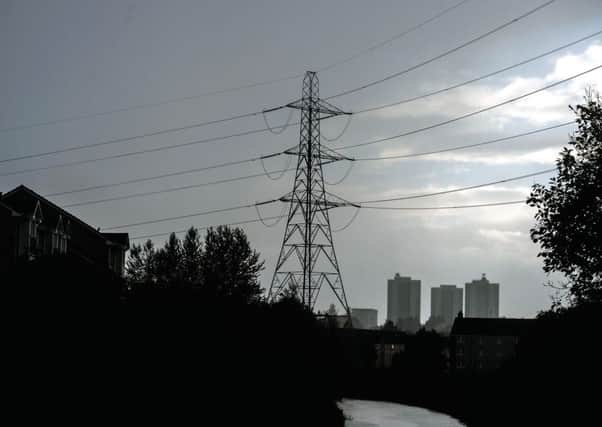ScottishPower awarded £20m to fast-track power grid for cars


ScottishPower has secured the regulatory funding to upgrade the existing grid so it can cope in the decades ahead as consumer habits change and new technologies emerge.
It comes as electric cars are increasing in popularity, with forecasts that by 2025, one in six cars sold will be an electric model. With the Scottish and UK governments also pledging to phase out the sales of new petrol and diesel vehicles, it has sparked concern that the existing electricity infrastructure could be overwhelmed.
Advertisement
Hide AdAdvertisement
Hide AdThe funding, issued by regulator Ofgem, will allow ScottishPower to “future proof” supply, with the work including the £7m deployment of solid state transformers which can closely control the network voltage and power flow, as well as provide a DC power supply.
One of the figures behind the project said that the windfall will ensure the grid can cope with demand until 2040, although he stressed that more investment will be required.
Colin Taylor, director of processes and technology at SP Energy Networks, the arm of ScottishPower which owns and maintains the transmission and distribution network, providing electricity to two million Scots, said that with 9.7 million electric vehicles set to be on the roads by 2040, it was vital to act now. He said: “The networks and technologies we have have served us well but there is a limit to the amount of capacity that you can get out of the existing networks.
“We will need to build more to ensure we’re an enabler of electric vehicles rather than a blocker of them, but all of the innovation efforts are about releasing flexibility in the system and getting as much as we can out of our existing assets.
“There will need to be investments on top of this, but effectively, what we’re looking at is getting to 2040 when the UK target is to ban sales of new petrol and diesel vehicles.”
With the Scottish Government pledging to phase out new petrol and diesel cars and vans across Scotland by 2032, the power demand from electric car users will spike considerably in the coming years.
The National Grid says the additional peak demand from electric vehicles is likely to be around five gigawatts by 2040, an 8 per cent increase on the existing peak demand value.
Taylor added: “I think the trick will be influencing and informing the behaviour of motorists.
“If we don’t get that aspect of it right, the peak could be significantly more.”